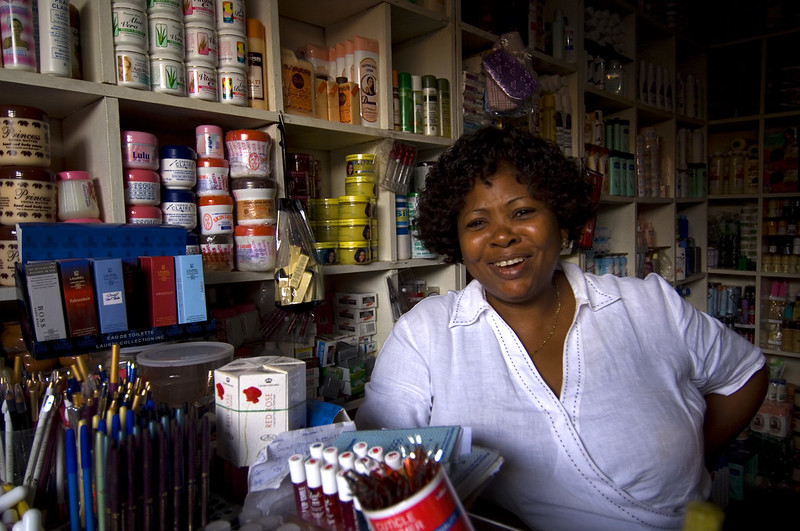The Link Between Self-Care and Universal Health Coverage

As governments and global bodies collectively work toward universal health coverage, self-care is an important — if not critical — element. Self-care equips people to act as informed agents of and protect their own health, prevent disease, and treat illness, both with and without the support of a healthcare provider.
This 12th December, we are celebrating Universal Health Coverage (UHC) Day and the culmination of the Self-Care Trailblazer Group’s 12 Days of UHC digital campaign. We are also reflecting that it has been one year since the first cases of the novel coronavirus were detected in December 2019 and quickly evolved into a pandemic that has disrupted the lives of billions of people worldwide — with well over 50 million cases and more than a million deaths. At a time when people around the world have experienced so much loss, governments and global bodies must commit to ending this crisis and building a safer and healthier future by investing in health systems that protect us all — starting now.
The pandemic has been an object lesson in the importance of UHC in promoting health for all and protecting everyone. As governments and global bodies collectively work toward UHC, discussions must include self-care as an important — if not critical — element in progressing toward our ultimate goal. Self-care equips people to act as informed agents of and protect their own health, prevent disease, and treat illness, both with and without the support of a healthcare provider.
Self-Care Helps People Manage Their Health
There are many examples of how self-care, when put into practice, can equip individuals to manage their own health. By providing access to HIV self-testing options, we can help reduce the number of people missed by traditional testing services and increase the number of people who are aware of their HIV status. A COVID-19 symptom checklist is another example of how self-care allows people to self-screen for symptoms and determine if they need to seek out a health care provider. And the increase in digital solutions has led to a greater configuration of self-led prevention, treatment and care possibilities than ever before. These are just a few examples of the self-care interventions that support people in managing their health.
While self-care has existed for ages, it is a new concept as an approach to strengthen health systems. A growing body of research shows that self-care can help people manage their own health while also improving equitable access to health care and ensuring the resources in the health system are used effectively and efficiently.
Governments Can Incorporate Self-Care in the COVID-19 Response—And Beyond
COVID-19 has accelerated and emphasized the need for self-care interventions to alleviate an already overburdened healthcare system. But the need for self-care will remain long after the pandemic is over. The World Health Organization expects there to be a worldwide shortage of 18 million health workers by 2030, which can prevent the world from reaching the global goal of UHC.
One solution to the health worker shortage is for governments to promote and use evidence-based self-care interventions. Government regulations that support self-injection contraception enable women to control their own fertility outside of a clinic and ease the burden on already overstretched health care providers. And not that long ago, hospital wards were filled with people who had chronic conditions such as diabetes. Now through information, knowledge and self-treatment, people can work in partnership with the health system to self-manage their health conditions at home. These examples show that self-care is a win-win where people get more control of their health and health systems can prioritize resources.
The case for self-care is clear. It has the potential for interventions that are accessible, available and affordable to everyone and everywhere, while maintaining the respect and dignity of our health consumers. At the same time, health systems can make better use of health resources and allow overstretched health workers to use their time most effectively. Self-care is good for individuals and for health systems. Many countries understand the benefits of self-care. For example, the Ministry of Health of Uganda has a group of experts that are currently developing self-care guidelines as an approach to strengthen their health system. In Nigeria they have recently concluded the nationalization of the recommendations in the WHO Consolidated Guideline on Self-Care Interventions for Health, which will further put health care services in the hands of individuals, increasing Nigeria’s potential to attain UHC.
Other governments can also maximize the benefits of integrating self-care into their health systems. Governments and global bodies should recognize self-care as an essential pillar of UHC and ensure evidence-based self-care interventions are approved, funded, adopted and implemented. Countries can start by implementing the recommendations in the WHO self-care guidelines. With self-care interventions as an ace up health systems’ sleeves, governments can optimize health and create more inclusive, equitable, efficient and people-centered health systems that promote health for all and protect everyone—ultimately fulfilling the promise of UHC.





